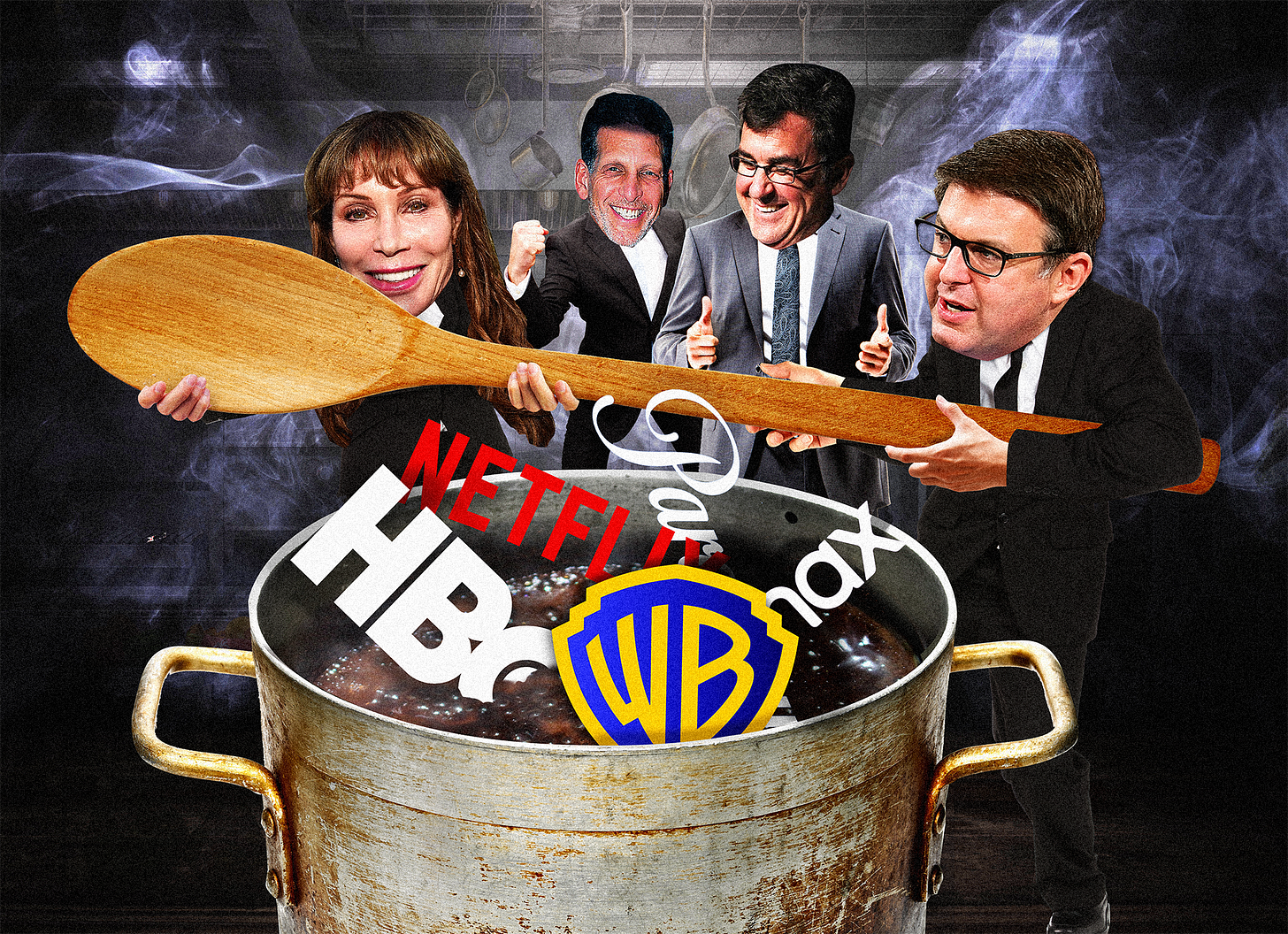Often ‘Dead Wrong’ But Never in Doubt: How Analysts Plague Hollywood
Jessica Reif Ehrlich and Rich Greenfield spar over WBD; others lose investors millions. How Wall St.'s equity researchers became the loudest mouths in the room

Jessica Reif Ehrlich has covered the media sector as an analyst for BofA Securities for 30 years. The respected veteran is in the Institutional Investor hall of fame thanks to a long history of good calls, for example her Spotify upgrade last summer when its stock was down to $160 a share. It’s now trading at around $330, after the music subscription service reported record profit in its Q2 earnings report.
So when Reif Ehrlich released a research note on July 16 with some tough love for Warner Bros. Discovery CEO David Zaslav, she commanded everyone’s attention with a warning that WBD cannot continue the status quo. “All options need to be on the table,” she wrote, and floated spinning off Max and the Warner Bros. studio and jettisoning the rest of the debt-laden company (a plan WBD management was mulling, according to an FT report two days later).
The call resonated all the more because there had been no bigger bull for the WBD deal in the first place than Reif Ehrlich herself. She told CNBC back in 2022 when AT&T relinquished control of WarnerMedia to Zaslav that shares in his newly-minted conglomerate could soar 82 percent long term. On April 11, 2022 — the first day of trading for WBD — its stock closed at $24.78. Just over two years later, after billions in overhead cuts and some 2,000 employees pink-slipped, the stock has had a hard time breaking 10 bucks since January.
“This was one of the worst calls I’ve made in my entire career,” Reif Ehrlich tells me. “I’m mortified I got people to buy the stock. It’s just been a straight decline.”
But in a twist that epitomizes the outsize role equity analysts play in both the media and investing arenas these days, Reif Ehrlich’s 180 was met two days later with the banking equivalent of a Kendrick Lamar-Drake diss track from Rich Greenfield, Brandon Ross and Mark Kelley of LightShed Partners, who titled their note: “Stop with the Warner Bros. Discovery Breakup Nonsense.”
Without naming her (choosing instead to focus on the media’s amplification of Reif Ehlrich’s call), the LightShed trio dismissed her proposal as “nonsensical.” Greenfield and Co.’s advice: “Kill Max, return HBO to the focus, abandon global streaming ambitions and focus on making great content for others as you maximize cashflow out of WBD’s legacy cable network assets.”
Of course, this attack/analyst note itself had the shelf life of a head of lettuce, as it also declared confidently that WBD would walk away from the NBA without trying to match Amazon’s deal or suing to get its way. (The WBD sought to match just days later and then sued the NBA on July 26.)
Greenfield is sanguine in the face of any incorrect prognostication. “The goal is always to be right more than wrong,” he says. “Predicting the future isn’t easy, but we love stepping up to bat and swinging.”
All the while, WBD’s stock drifted below $8 a share. For those keeping score on media’s demise, that’s a 67 percent drop since the company was created. Other entertainment conglomerates have fared just as poorly. Disney reached its all-time high in March 2021, topping $200 a share, but closed at about $89 on Friday, a 55 percent decline.
Then there’s Paramount Global, whose stock was trading at $40 in July 2021; now it hovers around $11, and news last month that Skydance’s acquisition of the company would finally come to pass didn’t help one bit. Analysts naturally have favored that deal, or some deal, for the company — M&A activity lifts all banking boats, after all. “Hard to buy if not for sale,” Reif Ehrlich wrote of Paramount last November, cutting her rating from “buy” to “underperform.” Greenfield told Bloomberg Technology in April that even a “dilutive transaction” (i.e., Skydance’s initial offer that Shari Redstone rejected) was a better option for Paramount than the status quo.
Reif Ehrlich, Greenfield and their ilk have a busy week ahead, with Fox, Disney, WBD, Paramount and Lionsgate all lined up to report earnings — analysts’ previews and post-games will light up X and CNBC, and media journalists will in turn scrutinize their takes. But as the media business lurches like the leaning tower of Pisa, and investors are losing their shirts on sector stocks, why are investors still listening?
I interviewed not only Reif Ehrlich and Greenfield for this piece, but also several other high-profile analysts, including Craig Moffett, Michael Pachter, Ben Mogil and Brian Wieser, as well as a senior studio executive and several former execs-turned-critics of analysts and their influence over the companies they cover.
Here’s what was said about Hollywood’s dependence on analysts, plus a discussion of how analysts’ own industry is deep in flux, plus a look at their good calls and bad calls:
First, Who Are These People and What Do They Know?
This column is for paid subscribers only. For full access and to continue reading all Ankler content, paid subscribers can click here.



